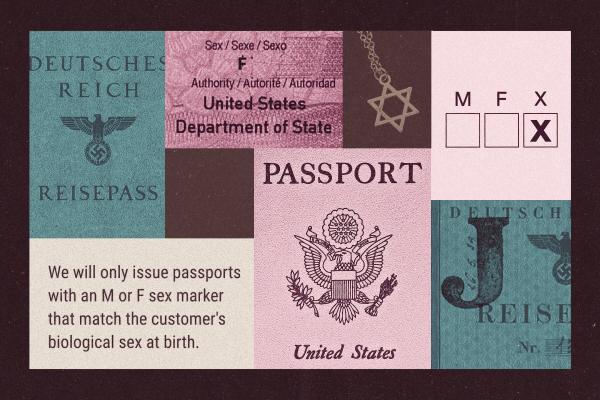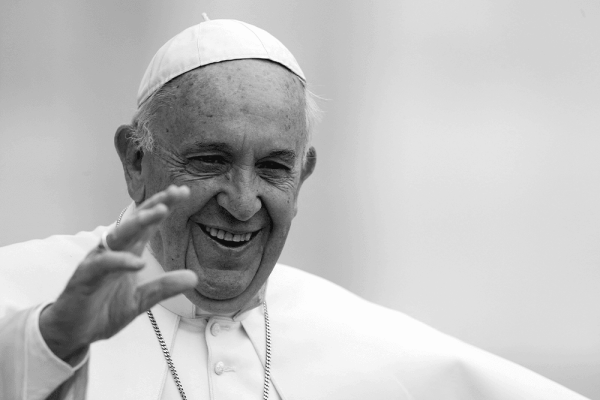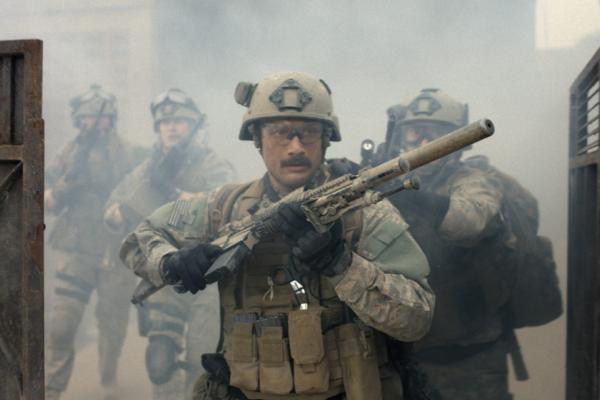White evangelical support for Donald Trump has led some black evangelicals to a crisis of faith and ecclesial identification. In this moment, Jemar Tisby has risen as a voice that’s unafraid to challenge white evangelicals’ complicity with racism, forging another path for those feeling alienated. Tisby is currently completing his PhD in history at the University of Mississippi. He is the president of The Witness: A Black Christian Collective, previously known as the Reformed African American Network, and writes widely about racism, the American church, and social justice. In 2017, a New York Times article quoted him saying: “Racism is not a ‘blind spot’ within white evangelicalism. It is part of that tradition’s DNA.” Now, Tisby has published a book tracing that DNA by way of history.
The Color of Compromise (Zondervan), which came out in January, makes the following observation: “History demonstrates that racism never goes away; it just adapts.” Tisby provides an accessible introduction to the legacy of racism in the American church, one that’s especially helpful to evangelicals of color navigating white institutions that have either ignored or minimized this history. I recently had the opportunity to talk to Tisby about his book.
The conversation that follows has been edited and condensed for clarity.
Daniel José Camacho, Sojourners: What motivated you to write The Color of Compromise?
Jemar Tisby: The short answer is I love the church but I hate racism. And racism in the church makes it really hard to love the church. So, I wanted to do something about that by way of building awareness about how deep the issue of racism is, how widespread it is within the history of the U.S. church.
The longer answer is it's the intersection of three different threads in my life: theology, history, and personal experience. I see the equality of all peoples all over the Bible. And that's not something I was taught early on as a Christian. It was something I had to discover along the way by listening to people of color and different pastors and theologians talking about it. So, I believe this is just part of the faith. Second was history. I began graduate studies in history in the fall of 2015 and I'm reading dozens and dozens of books about U.S. history, very few of which were actually focused on the church. But all of them somehow intersected with the Christian church. And many times, when you're talking about white Christians, they were on the wrong side of racial justice issues historically. So, I'm reading story after story and it's just very upsetting. That righteous anger motivated me to action and I wanted other people to have that same sense of righteous anger leading to action. Third was personal experience. I had just experienced racism in the church. It struck me that the place where all kinds of people should feel most welcome and most at home, in the household of God, became one of the places that was most exclusionary.
Camacho: Your book provides a solid historical survey that demonstrates how white Christians were not only complicit with but often the driving force of racism and ecclesial division in the United States. You show how this applies to every era of this nation’s history: from the colonial period, to the Civil War, through the age of Black Lives Matter today. As you say, white supremacy was not inevitable. It was a series of deliberate decisions made over and over again. In sifting through all of this history, what surprised you the most?
Tisby: "Surprised" is maybe not the word, but what gave me the most pause was the physical violence that you encounter when you study the history of racism and the church. I was prepared for the ideological bigotry and prejudice. I don't think I quite had prepared my mind or really my heart to encounter the ways that professed Christians, white Christians, enacted bloody violence upon the body in order to maintain white supremacy and control through slavery and segregation. It's just brutal history.
Camacho: I used to be conservative Reformed in my own theological orientation. A core tenet of this framework is God's sovereignty, the belief that God is in absolute control of all events even if the reasons are inscrutable to us humans. God is determining the course of history for the sake of God's glory. Is this something you still believe in?
Tisby: I don't think anything surprises God, but I don't think God ordains evil. I go back to the old saints and they say we have a God who sits high and looks low. They sang the song, "His Eye Is on the Sparrow." Those were words of comfort in the midst of tribulation. Comfort in the sense that black Christians going through the most horrendous kinds of abuse and discrimination knew that they had a God who saw their pain and saw their struggle. And even in the midst of it, was somehow still in control. From a historian's perspective, I have to look back on people who had sincere beliefs and, whether I understand them or not, know that their beliefs were a source of perseverance and even struggle and resistance for them.
Camacho: I assume that this was true for some people and not others. There is a tradition that did find comfort in this belief of God's sovereignty, but there are others that didn't. Or, do you see the history differently?
Tisby: To me, it's always been an ironic bit of hypocrisy that evangelicals, who are supposedly so focused on conversion, seem to fail to realize that the racism embedded in their tradition actually turns people away from true Christianity. There's a long history of this with black people. But more recently, the popularity of groups like the Black Hebrew Israelites, the Nation of Islam, and other religious groups, oftentimes is directly in response to the perception of Christianity as the white man's religion. So, you have black people who completely reject Christianity.
In the book, there's an anecdote about Muhammad Ali, explaining why he became a member of the Nation of Islam. It was from seeing a cartoon in the NOI newspaper of a white slave owner whipping a black enslaved person while also telling him to pray to Christ. And Ali realizes, "This faith isn't mine; this name isn't mine; it's all been forced on me by a racist imperialist kind of religion." So, he completely rejects it. And you find many examples of that throughout U.S. history.
Camacho: Among the many figures you consider in your book, you look at George Whitefield and Jonathan Edwards, who are pivotal to evangelicalism and conservative Calvinism in the United States. You also write that, “rarely do historical figures fit neatly into the category of ‘villain.’” Yet, you don’t hold back on highlighting their implicit and explicit support of slavery. What was it like to attempt an honest assessment of such figures?
Tisby: In a way, it was cathartic. Because I had found out through my own research that Whitefield and Edwards, in particular, were pro-slavery but I didn't know the specifics of it. And researching for the book, you do a deep dive into it and into the excellent work of historians digging in the archives and coming up with things. One of the facts that really just clings to my memory is that the first enslaved person that Edwards supposedly owned was named Venus. It put a human face on this broad principle that he was pro-slavery. So, what did that mean? It means he went and paid money for a human being who had a name, and her name was Venus.
Knowing that helped me be more aware of what I was dealing with. In a strange way, I felt more at peace: OK, I know what this is. I feel more prepared to encounter it on honest terms that way. So, I was glad to find out the information. I was glad to know because for so long this information about pro-slavery, pro-segregation white Christian theologians has been hidden, obscured, or denied.
Camacho: Switching gears to more recent history: In your book, you make a distinction between Black Lives Matter as an organization and Black Lives Matter as a movement. You write that the organization “includes a strong platform advocating for gay, queer, and transgender rights, a position that is contrary to a conservative evangelical definition of marriage as between one man and one woman.” Do you believe there should be space in more formal Black Lives Matter organizations for what you call the conservative evangelical definition of marriage?
Tisby: It's hard to say because Black Lives Matter is intentionally decentralized. What one might encounter in a BLM chapter in Memphis or Nashville or San Francisco or New York City could differ a whole lot. I do think there should be room for alliances within antiracism activism where you're aligned on the fact that you need to fight racism and you may not be aligned on other theological beliefs.
I think there should be room and space for people to link arms in common cause even if and when they disagree on other topics. The fact is, that's the only way social movements in the United States have succeeded. On the flip side, oftentimes when they've fallen apart it’s because coalitions can't come together and unite at a grassroots level. So, I do think there should be space but I think it's a two-way street. My focus in the book is much more on the fact that conservative white evangelicals won't give Black Lives Matter a hearing because they differ on sexual ethics, which I think is detrimental to the antiracist movement in general.
Camacho: Building a coalition definitely requires space for disagreement. We can't agree on all issues if we're going to make progress in building a coalition. At the same time, there's a tension regarding to what degree these issues intersect and people are able to compromise.
Later in this chapter, you recommend to your readers: “Contact the nearest Black Lives Matter chapter and speak with representatives. It may be that the people involved are people of faith.” And you say, “Some people decide that they can participate in certain actions and not others. Ultimately, the organization with which one chooses to affiliate in the cause of antiracism is a matter of conscience.” So, if I understand you correctly here, are you suggesting that LGBTQ rights are a matter of personal conscience in the work of antiracism?
Tisby: I think they're separate issues. Yes, they intersect in a lot of different ways in terms of civic rights. But I think there's also a danger in identifying them as one in the same in terms of a cause and activism. By analogy, criminal justice reform is really important to me and it intersects with a lot of other justice issues such as education reform. But they're not the same thing. What I'm saying in the book is that when you focus on the specific issue of antiracism, that's where you have to figure out, "is this organization, whatever it might be, doing the work of antiracism to the degree that I think should be done? And am I able then to partner with it if there's some other areas where I disagree?"
I think it's almost like choosing a political candidate. Where you have someone who substantially promotes your ideas and beliefs politically-speaking, but they may not check every box. It's a question of do they check enough boxes that you think you can support them, or should you keep looking for someone who more closely represents where you are?
Camacho: In your conclusion, you write: “God ordered Joshua to have strength and courage so that Joshua could faithfully execute his calling. In much the same way, the church today must receive God’s command to show strength and courage to combat racism.” To be honest, I found your elevation of Joshua here, for a lack of better words, to be deeply unsettling. The context of this story is genocide and dispossessing people of their land. Historically, Christians in colonial America used this story about the conquest of the Canaanites to justify their actions against Native Americans. And many Native American scholars have criticized the way that Christian theology has interpreted and used this story. Is this something you considered when writing the conclusion to your book?
Tisby: No, I didn't.
Camacho: Is this something that you want to consider moving forward?
Tisby: Sure. But I also think the context is important. So, you're at the conclusion of a book on Christian complicity and racism. It would be highly interesting for anyone to walk away reading an exhortation based on Joshua 1, saying: "Okay, this is another version of Manifest Destiny. We need to go exploit and colonize people of color." That would be a very poor reading of the book in general. Secondly, it's an exhortation to courage, which I think is the fundamental issue when we're dealing with antiracist activism. We don't have a paucity of solutions. What we have is a lack of willpower, a lack of courage to take on the risks and the dangers that this activity includes. So, the conclusion of the book is saying, "Get up. Do something. Don't just read this and be horrified at the information or say, "Well, this is a book that makes you go ‘hmmm.'" I hope it's a book that makes you do something and get active in the cause. Because the whole idea is that complicity can include passivity, and so in order not to be complicit we have to be actively fighting racism.
Camacho: To be fair, I don't think the spirit of your book is about conquest. It's clearly about antiracism. It's about the courage to point out racism in the history of the church. I do take that to be the spirit of your book, but precisely for that reason I found your use of Joshua in the conclusion to be very dissonant. The context for that story is that the courage that Joshua has is to complete genocide. It's to completely destroy the Canaanites, to not spare anybody. Joshua 11:11 says: "And they put to the sword all who were in it, utterly destroying them; there was no one left who breathed … "
By lifting that story up, I think it actually shows the way in which Christian theology and the way we use Scripture basically implicates us in racialized views of people and the world, even when we're trying to combat racism. That's the reason why I raise the question. It seems to me you do a good job of pointing out the history of what Christians have done. But the way that Christian theology itself, or the Bible itself, has been used — that is in need of further interrogation.
Tisby: Gotcha. Appreciate that insight. That's good.
Camacho: What are you working on next? What is the next stage of your research?
Tisby: Dissertation! That is what is consuming most of my attention in terms of research and writing right now. I'm looking at black evangelicalism in the post-WWII United States to interrogate the centrality of whiteness to evangelicalism and also the role of people of faith in black power and black consciousness movements.
Got something to say about what you're reading? We value your feedback!







